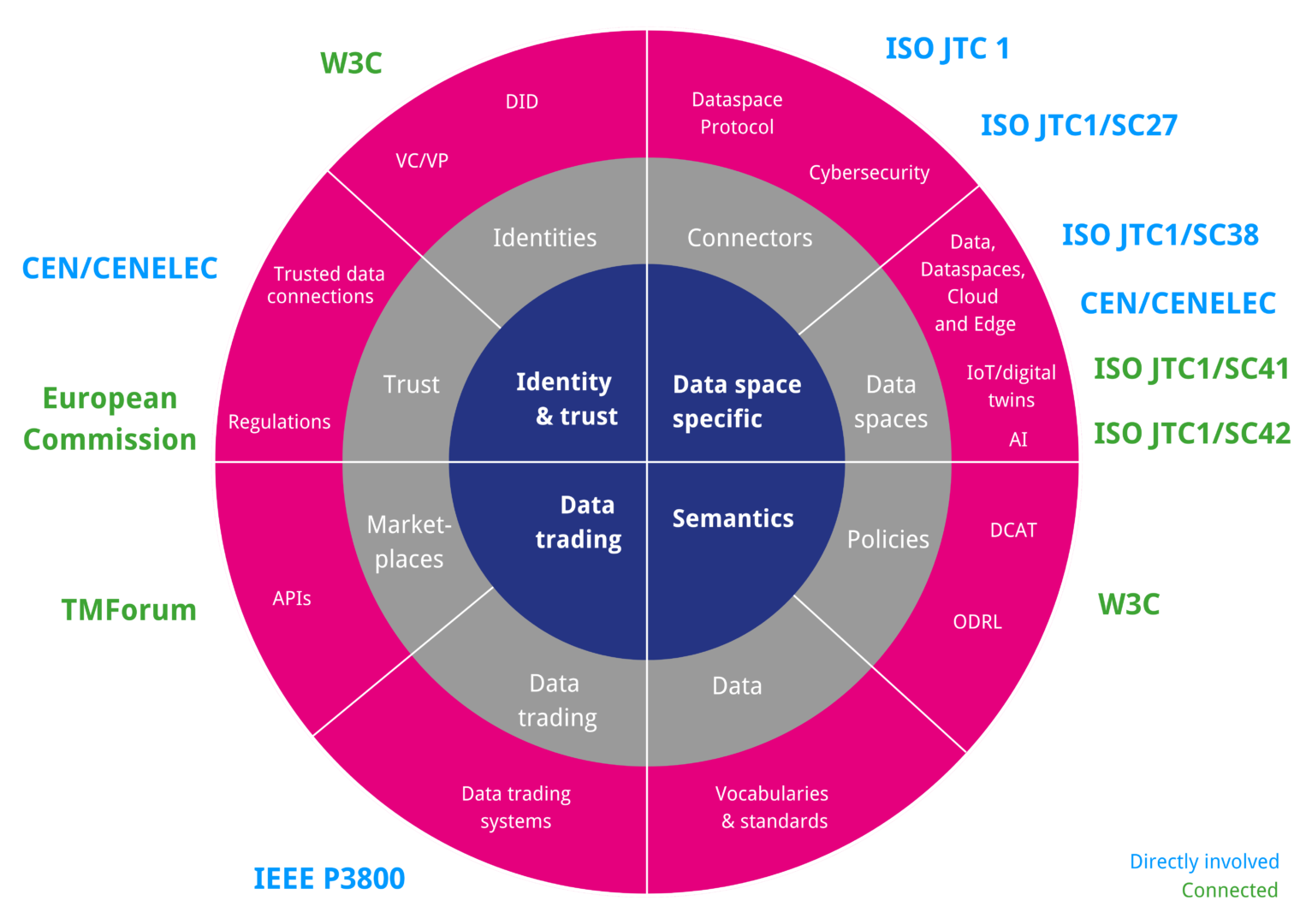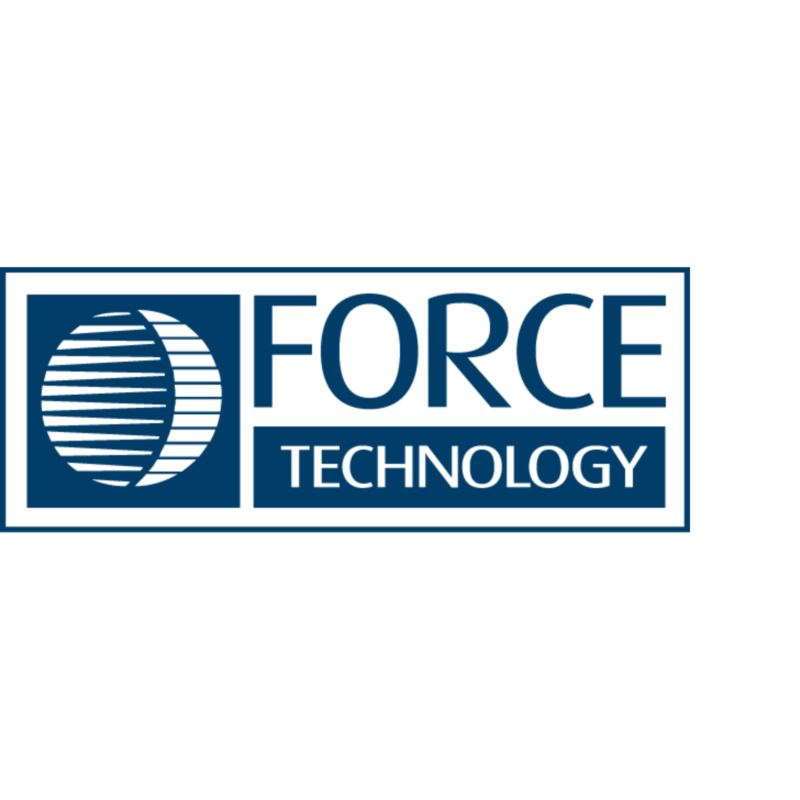International standards
Worldwide access, European principles
Our vision for shaping the future data economy requires international standards for data spaces. Such standards are crucial for enabling sovereign and trustworthy data sharing, as demanded by European stakeholders, and are essential for ensuring interoperability across the global landscape.
Standardization – the key to interoperability
Standardization is crucial for global exchange because it enables interoperability, reduces technical barriers, and enhances trade. It helps businesses reduce costs, enter global markets, and ensure quality products for consumers. It facilitates innovation, minimizes R&D risks, and supports environmental protection. Additionally, it allows companies to influence regulations and stay competitive by adapting to market trends.
Given the established position of IDS as de facto standards, it is vital to improve go-to-market strategies and increase maturity by aligning IDSA assets with relevant standardization bodies.
This effort is at the forefront of everything we do at IDSA. Our members, the IDSA working groups and the standardization coordination group, as well as the IDSA technical team, work diligently with key bodies at ISO, CEN/CENELEC and W3C and advise the European Commission on advancing global standards for data spaces.

IDSA engagement in European and International Standardization bodies
How it all comes together
Our standardization efforts are fueled by the IDSA members and technical staff’s commitment, who actively participate in standards committees to shape and lead the development of data spaces. Central to these efforts are the IDS Reference Architecture Model, the IDSA Rulebook, and the Dataspace Protocol, which are key in setting technical specifications and fostering interoperability.
Eclipse Foundation – new working group on data spaces
In collaboration with the Eclipse Foundation, we’ve launched the Eclipse Dataspace Working Group (EDWG) to spearhead the creation of open-source software, components and specifications for data spaces. This partnership accelerates the development of the Dataspace Protocol (DSP), aiming to establish it as an ISO Standard and enhance global data sharing and sovereignty. The EDWG aligns technical efforts with universal standards, leveraging global developer networks to ensure interoperability and trust in data spaces.
ISO, IEEE, CEN/CENELEC – international & European standardization activities
On the international front, initiatives like IEEE P3800 and various ISO JTC1 activities underscore the growing importance of data spaces in global standardization, requiring collaboration across sectors. In Europe, the focus is on aligning with regulations such as the Digital Markets Act and the Data Governance Act, with collaborative efforts in CEN/CENELEC addressing the region’s specific needs through initiatives like the Data, Dataspaces, Cloud and Edge Focus Group, aiming to harmonize standards across the digital economy.
European Commission – regulation state of the art
The European Commission (EC), through the Multi-Stakeholder Platform on ICT Standardization and the Data Spaces Support Centre (DSSC), works to align EU policy priorities with standardization efforts. IDSA’s contributions to data interoperability and the Dataspace Protocol are integrated into broader regulatory and standardization frameworks.
More
IDSA Rulebook
Learn how the IDSA Rulebook supports the development and operation of data spaces.
IDS RAM
Get insights into secure and trusted data sharing in business ecosystems.
Dataspace Protocol
Get an overview of the Dataspace Protocol
Any questions? Contact us!

Your contact person:
Silvia Castellvi
Director Research & Standardization
Become a member
Benefit from all current developments: Become a member of the International Data Spaces Association now!









